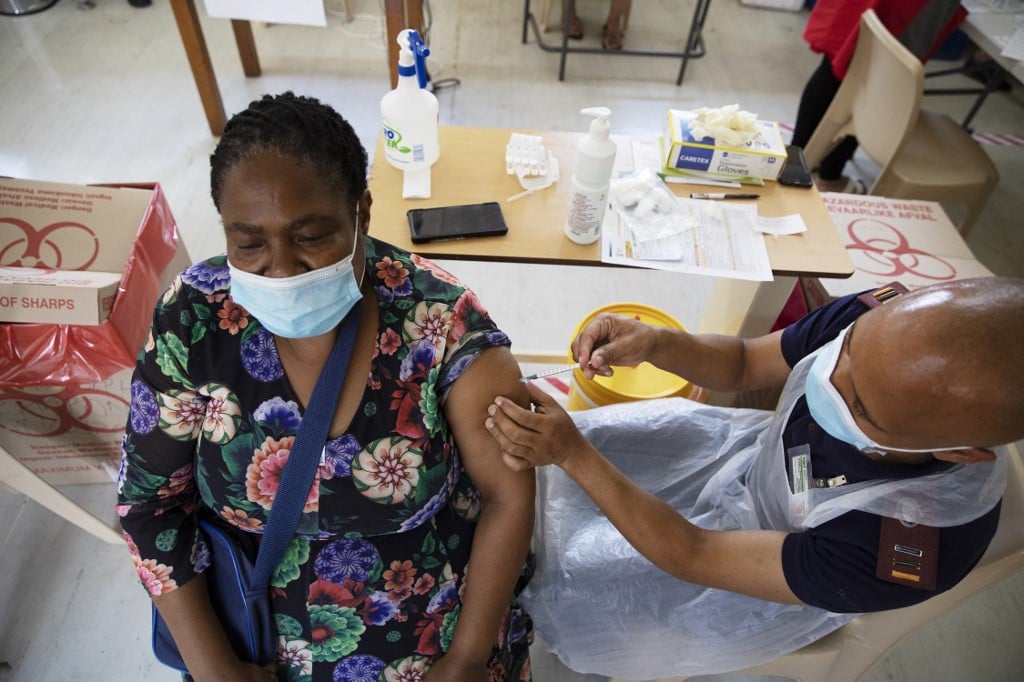The Kenyan government has been urged to amend a compulsory Covid-19 vaccine mandate for citizens seeking to access government services.
On 21 November Kenya’s cabinet secretary for health, Mutahi Kagwe, announced that authorities will require anyone seeking government services to provide proof of full Covid-19 vaccination. Services affected will include public transportation, education, immigration, hospitals, and prison visitation.
Proof of vaccination will also be mandatory for entering national parks, hotels, and restaurants.
Measures risk undermining human rights, claims NGO
On 14 December, the order was temporarily suspended by the High Court pending a challenge from a businessman who called it a “gross violation” of the constitution.
Human Rights Watch (HRW) said that the proposed measures, which had been due to go into effect from 21 December, should be amended to avoid “undermining basic rights”, given that only around 10% of Kenyans had been vaccinated by the end of November, according to government figures.
In an intervention that could prompt a wider debate about appropriate government restrictions in Africa as the Omicron variant spreads, HRW said that the measures risk violating the rights to work, health, education, and social security for millions of Kenyans.
“While the government has an obligation to protect its people from serious public health threats, the measures must be reasonable and proportional,” said Adi Radhakrishnan, Africa research fellow at Human Rights Watch.
“Vaccination coverage hinges on availability and accessibility, and the government’s new measures could leave millions of Kenyans unable to get essential government services.”
Accessibility to vaccine not assured
The Kenyan government has stated that the new policy aims to persuade more people to receive vaccines, but Kenya does not have a sufficient supply of Covid-19 vaccines to ensure that all adults can be vaccinated by the Health Ministry’s deadline, says HRW.
With an estimated adult population of 27.2m and a total population of 55m, as of 11 December the country had received approximately 23m doses since the start of the vaccination programme.
“The November 21 Kenyan vaccine requirement announcement does not provide details of how these new measures will be carried out and enforced nor does it provide alternative procedures for those who are ineligible for vaccinations or have a medical exemption, further risking arbitrary denial of access to services,” says HRW.
The majority of vaccines currently available in Kenya require two doses for full vaccination, with the second dose administered 4 to 12 weeks after the first, depending on the type of vaccine. It is likely that even people who get their first shot by the 21 December deadline will still face restrictions.
“Although vaccine mandates may be useful, they ought to be implemented within a broader public health strategy that emphasises accessibility of vaccines and other preventive measures for Covid-19,” Radhakrishnan said.
“A vaccine mandate should not arbitrarily create undue burdens for any population group, or disproportionately infringe on human rights.”
Accelerating vaccination will save lives
The stance is likely to spark debate as cases again begin to mount. Africa recorded an 83% surge in new Covid-19 cases during the past week, driven by the Delta and the Omicron variants, according to the World Health Organization (WHO).
The continent recorded more than 196,000 new cases for the week ending on 12 December, up from around 107,000 in the previous week.
The number of new Covid-19 cases is currently doubling every five days, the shortest reported this year, although deaths dropped by 19% last week compared with the previous week.
“In a world where Africa had the doses and support to vaccinate 70% of its population by the end of 2021 – a level many wealthy countries have achieved – we probably would be seeing tens of thousands of fewer deaths from Covid-19 next year,” said Dr Matshido Moeti, WHO regional director for Africa.
“But we can still save many lives if we can accelerate the pace of vaccination in early 2022.”
Want to continue reading? Subscribe today.
You've read all your free articles for this month! Subscribe now to enjoy full access to our content.
Digital Monthly
£8.00 / month
Receive full unlimited access to our articles, opinions, podcasts and more.
Digital Yearly
£70.00 / year
Our best value offer - save £26 and gain access to all of our digital content for an entire year!
 Sign in with Google
Sign in with Google 



